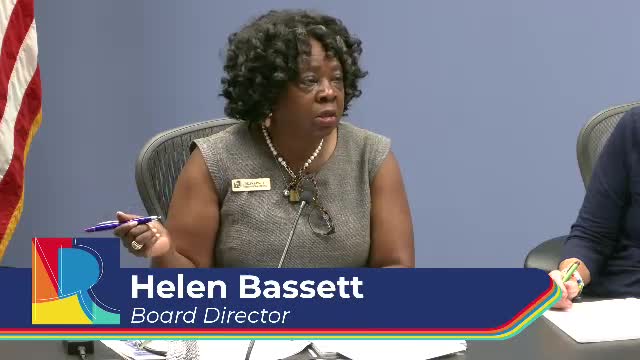Board member confronts allegations in heated censure debate
August 26, 2024 | Robbinsdale Public School District, School Boards, Minnesota
This article was created by AI summarizing key points discussed. AI makes mistakes, so for full details and context, please refer to the video of the full meeting. Please report any errors so we can fix them. Report an error »

In a recent government meeting, tensions escalated as board members engaged in a heated discussion regarding allegations of misconduct and the potential censure of a director. The meeting revealed a divide among members, with one director vehemently defending their actions against accusations of abuse and misconduct, asserting that no factual basis had been provided for such claims.
The director expressed frustration over what they described as a lack of evidence supporting the allegations, emphasizing their willingness to accept accountability for any wrongdoing if substantiated. They criticized the use of private social media groups to rally support against them, asserting that they have maintained transparency and integrity throughout their tenure.
The conversation shifted to procedural matters, with another member referencing Robert's Rules of Order, which outline the process for addressing disciplinary issues within the board. This member highlighted the necessity for specific findings or allegations to be documented in any censure motion, underscoring the importance of ethical conduct among board members.
As discussions continued, the director reiterated their commitment to organizational transparency, stating that all meetings are recorded for accuracy and accountability. They maintained that their actions were not intended to undermine anyone but were part of their responsibility to ensure effective governance.
The meeting concluded with a proposal for a public reprimand aimed at correcting behavior, reflecting the board's ongoing struggle to navigate internal conflicts while upholding its standards of conduct. The outcome of this discussion remains to be seen as the board grapples with the implications of these allegations and the need for a cohesive working environment.
The director expressed frustration over what they described as a lack of evidence supporting the allegations, emphasizing their willingness to accept accountability for any wrongdoing if substantiated. They criticized the use of private social media groups to rally support against them, asserting that they have maintained transparency and integrity throughout their tenure.
The conversation shifted to procedural matters, with another member referencing Robert's Rules of Order, which outline the process for addressing disciplinary issues within the board. This member highlighted the necessity for specific findings or allegations to be documented in any censure motion, underscoring the importance of ethical conduct among board members.
As discussions continued, the director reiterated their commitment to organizational transparency, stating that all meetings are recorded for accuracy and accountability. They maintained that their actions were not intended to undermine anyone but were part of their responsibility to ensure effective governance.
The meeting concluded with a proposal for a public reprimand aimed at correcting behavior, reflecting the board's ongoing struggle to navigate internal conflicts while upholding its standards of conduct. The outcome of this discussion remains to be seen as the board grapples with the implications of these allegations and the need for a cohesive working environment.
View the Full Meeting & All Its Details
This article offers just a summary. Unlock complete video, transcripts, and insights as a Founder Member.
✓
Watch full, unedited meeting videos
✓
Search every word spoken in unlimited transcripts
✓
AI summaries & real-time alerts (all government levels)
✓
Permanent access to expanding government content
30-day money-back guarantee

